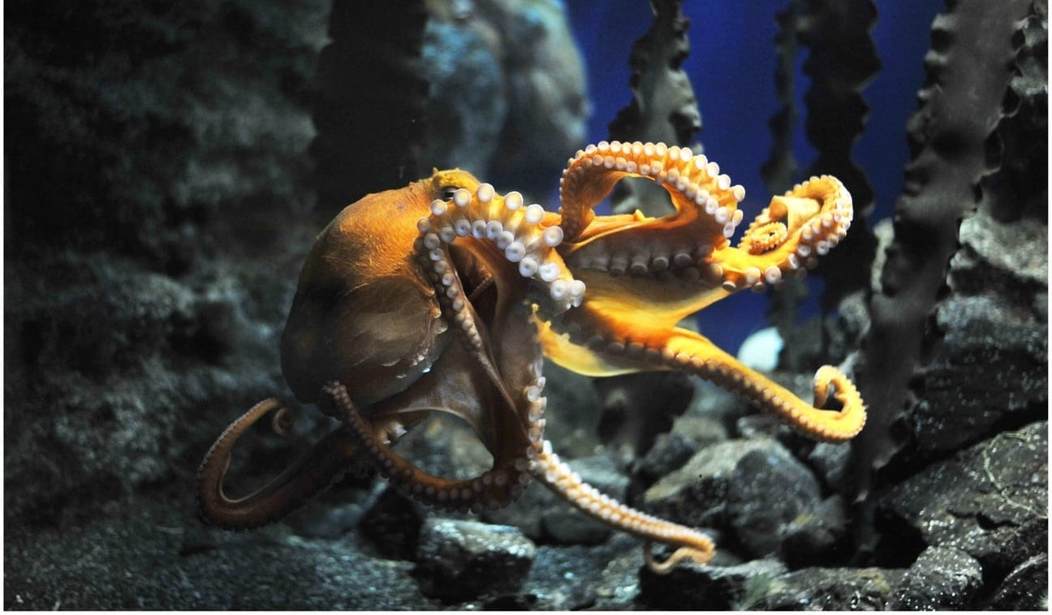There’s something creepily fascinating about octopuses: the eyes, the beaks, the tentacles, the suckers. But who knew they came from outer space?
Octopuses are aliens. That’s the claim being made by a team of 33 researchers published in a peer-reviewed scientific journal. They are not referring to aliens in a metaphorical sense, but literal aliens from outer space. Since the paper was released on Sunday, a trickle of news coverage has turned into a torrent, with increasingly alarming headlines about octopuses and their extra-terrestrial origins.
It will not come as a surprise to many to learn that these claims have been roundly mocked by the scientific community, who have branded the paper – published in Progress in Biophysics and Molecular Biology – as ridiculous and unscientific.
Yeah, well fooey on that. They laughed at Galileo, didn’t they?
What are the claims being made?
They suggest the Cambrian explosion, a sudden burst of life that occurred around 540 million years ago, was the result of extra-terrestrial intervention. The paper asks whether this event, which saw the rapid emergence of most of the main animal groups that still exist on Earth today, was “terrestrial or cosmic”. Their conclusion is the latter.
How do the scientists suggest this would work?
Specifically, the researchers propose the idea that alien viruses crashed to Earth in a meteor, infected a population of primitive squid and caused them to evolve into octopuses. Another theory they suggest is that fertilised squid or octopus eggs were delivered to Earth by a meteor.
Why do the researchers look at the octopus in particular?
Octopuses are weird. They are molluscs, meaning they are closely related to snails, and yet they are incredibly intelligent. On top of their large brains and sophisticated nervous systems, the authors of the new paper list camera-like eyes, flexible bodies and ability to camouflage themselves by changing colour and shape as evidence of their extra-terrestrial origins.
So suddenly did these features appear in the octopus family tree that “it is plausible then to suggest they seem to be borrowed from a far distant ‘future’ in terms of terrestrial evolution, or more realistically from the cosmos at large,” the authors write.
I mean, come on: not even Darwin could have thought these critters up:
Here come the naysayers:
What reason is there to doubt the claims being made in the paper?
There are plenty of reasons. First off, as Mark Carnall from the Oxford University Museum of Natural History pointed out in a series of tweets, not one of the paper’s authors is a zoologist. Much of the authors’ speculation rests on the idea that the genetics of octopuses and their relatives are mysterious – yet a 2015 paper published in Nature revealed the octopus genome, so this is rather disingenuous.
In fact, octopus genes suggest they fit into the generally understood theory of the evolution of life on Earth, and require no alien invasion. They are thought to have split from the squid lineage around 135 million years ago.
Molecular geneticist Professor Karin Moelling of the Max Planck Institute Molecular Genetics, who was asked to review the report, concluded that it “cannot be taken seriously.” The primary reason for doubt given by Professor Moelling is that there is “no evidence at all.”
Details, details. If there’s no evidence, then how do these credentialists account for sailor’s tales like this?
What can’t be denied is that they’re also yummy.
I for one welcome our new alien lords, masters, tako and calamari.












Join the conversation as a VIP Member